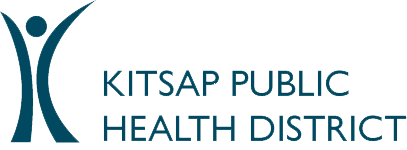
Actions requested
- BE AWARE the FDA issued a notification on 4/26/2023 regarding limited supply of long-acting penicillin G benzathine injectable suspension products (Bicillin® L-A) due to manufacturer shortages.
- Kitsap Public Health District is aware of providers in neighboring counties reporting difficulty in obtaining Bicillin® L-A. The FDA anticipates this shortage to persist through the end of 2023.
- BE AWARE Bicillin® L-A is the first-line treatment for syphilis and the only recommended treatment for pregnant people and infants with syphilis.
- CONSIDER alternate treatment with doxycycline for non-pregnant patients with no other contraindications to doxycycline therapy.
- Providers wishing to consult on whether a syphilis patient or their partner(s) should be prioritized for Bicillin® L-A are encouraged to call the KPHD Communicable Disease Team at (360) 728-2235.
- MONITOR inventories of Bicillin® L-A and to report shortages to Kitsap Public Health.
- CONSERVE Bicillin® L-A by using alternative drugs to treat group A strep pharyngitis and for primary rheumatic fever prophylaxis, e.g., penicillin V, amoxicillin, and azithromycin.
- BE AWARE as of June 2023, Kitsap Public Health District (KPHD) has available Bicillin® L-A which can be released to providers on request. Providers encountering difficulty in obtaining Bicillin® L-A should contact Kitsap Public Health District at 360-728-2235.
- Public Health will continue to monitor the situation, and will issue another notification if there is a need to temporarily modify treatment strategies.
Background
Pfizer pharmaceuticals has reported a shortage of benzathine penicillin (Bicillin® L-A) due to increased demand for the drug related to the growing national and international epidemic of syphilis. Pfizer is the sole supplier of benzathine penicillin in the U.S.
Local medical providers have alerted Public Health that they have had trouble securing benzathine penicillin to treat patients with syphilis. In the face of this shortage, Public Health is asking medical providers to treat selected patients with syphilis with doxycycline if they believe that the patient can adhere to a recommended course of treatment.
Additionally, because it is often difficult to assure that patients with late latent syphilis or syphilis of unknown duration receive three injections of benzathine penicillin at weekly intervals, medical providers should consider treating such patients with a regimen that combines a single intramuscular dose of benzathine penicillin with a 28-day course of doxycycline. The decision to use such a regimen should be made in collaboration with the patient receiving the treatment.
Treatment considerations
The following recommendations are made in alignment with CDC’s syphilis treatment guidelines and with the Washington State Department of Health’s June 2023 Bicillin Prioritization Guidance.
The following groups should always be treated with Bicillin® L-A:
- Pregnant cases and pregnant partners of cases
- Infants with syphilis
- People with an allergy to doxycycline
The following groups should be prioritized for Bicillin® L-A if there is adequate supply:
- Sexual partners of pregnant people
- Pregnancy capable people of childbearing age without consistent birth control
- People living with HIV
The following group should be assessed on a case-by-case basis:
- People for whom doxycycline adherence or follow-up testing and care might be an issue
The following groups should be treated with doxycycline until the Bicillin® L-A supply shortages are resolved:
- Cisgender men and other patients who are not capable of becoming pregnant where medication adherence is not a concern
- Pregnancy-capable people using consistent birth control where medication adherence is not a concern
- In patients with late latent syphilis or syphilis of unknown duration whose adherence with weekly injections of benzathine is uncertain, medical providers should consider giving the patient a single 2.4 million unit intramuscular dose of benzathine penicillin plus a 28 days course of doxycycline 100mg po twice a day.
- Many patients with late latent syphilis or syphilis of unknown duration struggle to adhere to a regimen of weekly benzathine penicillin injections. In such instances, medical provider should consider providing patients with a single dose of benzathine penicillin and a course of doxycycline. Such a regimen may improve patient adherence.
Considerations for syphilis treatment with doxycycline (alternative treatment for non-pregnant patients):
- Dosing for early syphilis (primary, secondary, or early latent): Doxycycline 100mg by mouth twice daily for 14 days.
- Dosing for late syphilis (late latent or unknown duration): Doxycycline 100mg by mouth twice daily for 28 days.
- Per CDC treatment guidelines, patients treated with doxycycline should have close serologic and clinical follow-up, especially individuals with HIV infection. Follow RPR titers to ensure a 4-fold decrease is achieved in 6 to 12 months.
- Patients receiving alternative treatment with doxycycline should receive education on the importance of adherence.
Providers are encouraged to consult with Kitsap Public Health Communicable Disease at 360- 728-2235.
Additional resources
- Kitsap Public Health Provider Resources
- CDC Syphilis Pocket Guide for Providers
- CDC STI Tx App (available for Apple and Android mobile devices)
This advisory is also posted on the health advisory page of our Provider Resources website, providers.kitsappublichealth.org.
Contacting the district
- Call (360) 728-2235 and leave a message. Includes reporting notifiable conditions 24 hours a day, 7 days a week. Leave the patient’s name, date of birth and disease.
- Fax (360) 813-1168.
